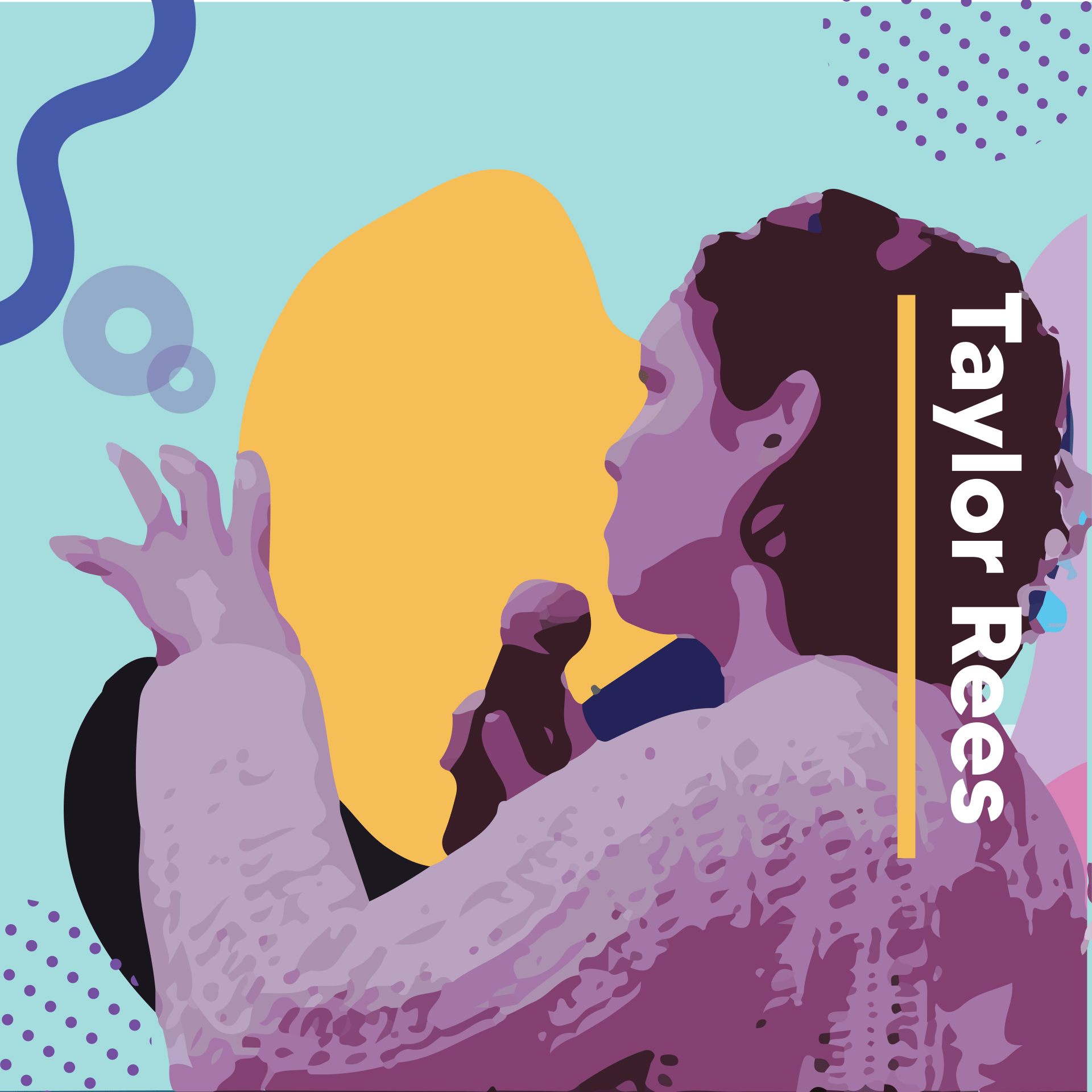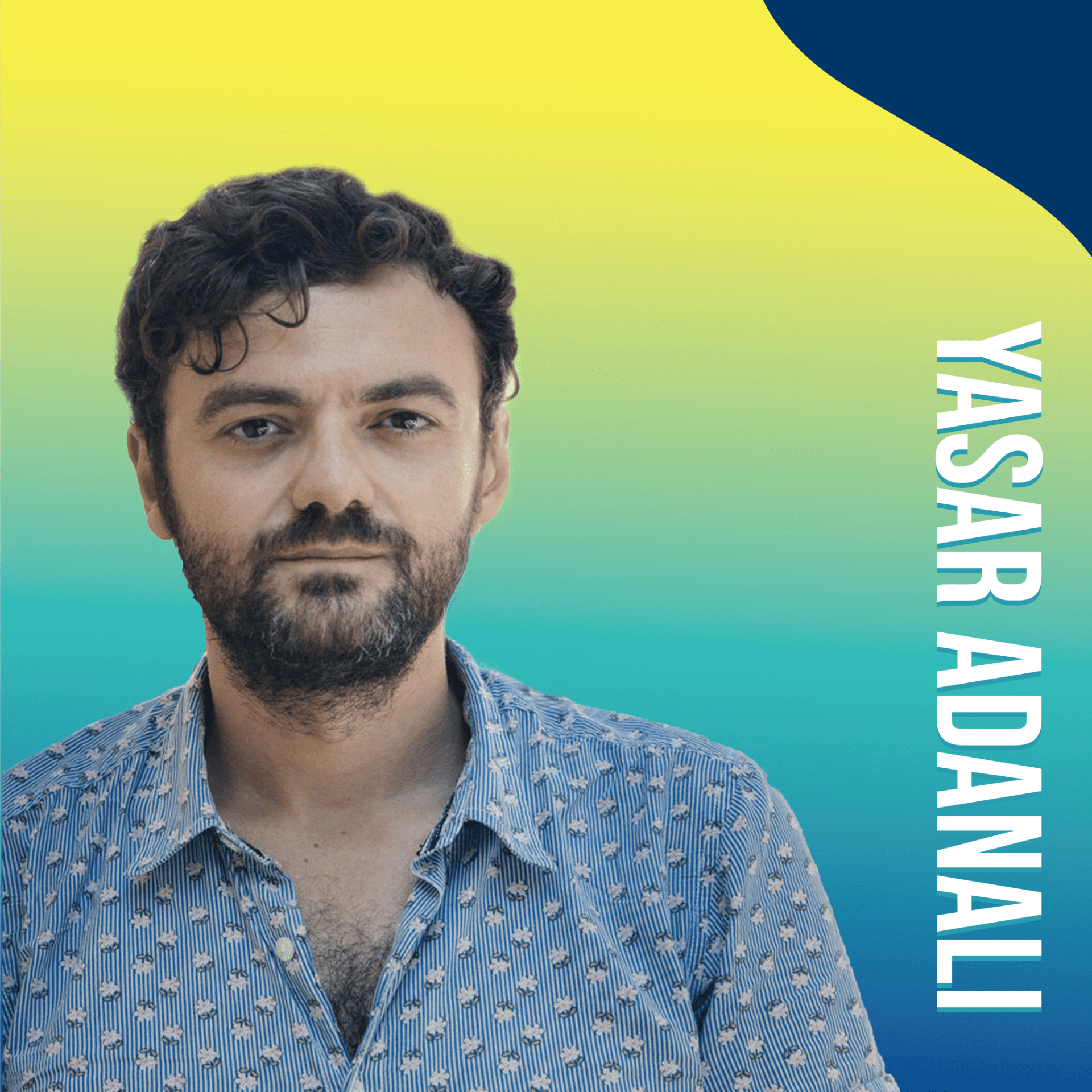
Episode #06
Daniel Glick
on
Climate Awareness & Communication
Join the Global Lab in listening to Daniel Glick about how climate change communication and awareness has evolved over the years. In this episode, Daniel talks about the difficulty of communicating about climate change to different people with different political backgrounds, highlighting the need for clearer language to foster collaboration and change. Come see a journalist’s point of view to how people without a scientific background perceive climate change and where science needs to tell a story to create greater awareness.
Hosted by Stephen McCauley, The Global School, WPI
Daniel Glick on Climate Awareness & Communication
Guest Bio
Daniel Glick is an author, editor, freelance journalist, and teacher with a long multimedia career. He has written for the National Geographic, Smithsonian, Rolling Stone, ScientificAmerican.com, Audobon, Washington Post Magazine, among several others. He has also published five books and produced two video series on how “climate change is already affecting the lives and livelihoods of Americans around the country.” Additionally, he co-founded a multimedia journalistic outlet called The Story Group. The stories produced by this non-profit have garnered acclaim in several environmental film festivals.
Transcript
Scroll to read more
Intro: [00:00:03] Empathize, engage, inquire, participate, collaborate, amplify.
Intro: [00:00:10] Welcome to Story World, where we feature creative scholarship and global engagement by students, faculty, guests and friends at the Global Lab at WPI. Story World. Explore with us.
Stephen: [00:00:29] I’m here with Daniel Glick. He is an author and journalist who’s been published in more than 50 magazines, including the National Geographic and Newsweek. He was recently awarded an National Press Foundation Award for Energy and Environment Writing. He’s also a fellow here in the Global Lab at WPI, and he’s been an adjunct instructor at WPI, teaching a course on climate change and resiliency in the developing world. Welcome Dan.
Daniel: [00:00:58] Good to be here.
Stephen: [00:00:59] So then you’ve been writing about climate change for a while. Can you give us a quick tour of sort of when you got into this issue and how what you’ve been working on on climate change?
Daniel: [00:01:10] Yeah, I think the first story that I contributed to that had anything to do with climate change was after Hurricane Andrew in 1992. I was working for Newsweek and it was right around the time scientists were beginning to speak publicly about climate change and what they had known actually for decades already, that the amount of carbon dioxide that we were emitting into the atmosphere was already changing some really important aspects of atmospheric physics. And one of those things was the frequency and or the intensity, especially of hurricanes. And so we were able to sort of bring that in after Hurricane Andrew, which was just a terribly destructive hurricane, and trying to explain to people that, of course, hurricanes hadn’t happened for, you know, history of the planet. But now they were happening. With more intensity and in places where humans had settled. And so they were creating these huge billion multibillion dollar disasters that were no longer natural disasters.
Stephen: [00:02:17] Mm hmm. So there’s a lot I want to dive into about kind of the people you were engaging around that the public, as well as scientists. But maybe before that. Can you give us a quick update since that work on Hurricane Andrew? What other work have you done on climate change?
Daniel: [00:02:33] Well, it’s been a theme, really, of my career and a lot of offshoots, and I think that’s probably to fast forward. We’re realizing that climate change is not just about rising average global temperatures. It’s about the impacts of those temperatures on so many different things about human systems from infrastructure to public health. And so over the years, I guess, you know, really it’s an arc of my own education as I was able to and fortunate enough to speak with scientists from many different disciplines who were charting these changes in the planet and charting the the impacts of those changes on human societies. In 2004, I was part of a team that we created an entire issue of National Geographic, 75 pages of the magazine, to really look at different aspects of climate change. And that was a real turning point. National Geographic, of course, is a very visual magazine. And I remember one of the editors turned to me and said, you know, we’ve been wanting to write this story for a long time, but this is the first time we could point a camera at it. And so the the effects of climate change were already being apparent. I mean, the sort of classic one is the picture of a glacier up in Montana, where I went to report the story at Glacier National Park of the particular Glacier Sperry Glacier in 1924. And that glacier now, which is just a shadow of its former self. And so starting to be able to show and not just tell people about climate change was a really important turning point.
Stephen: [00:04:17] Mm hmm. Yeah, that is. And so you’ve been looking at it for a good 25 years and from this interesting perspective of a journalist who’s documenting it along the way. Where are we now? You know, we know it’s urgent. But give us your perspective on what are the real vulnerabilities out there or what’s happening from your perspective?
Daniel: [00:04:39] Well, one of the things that is enormously frustrating, I have to admit, is that over the last 25, 30 years of my career writing about this, the science has just gotten better and better and better. Back in the late eighties, scientists were saying, well, our global climate models, there’s still a lot of uncertainty in it. We’re not quite sure. And, of course, scientists are very conservative by their very nature. And so they didn’t want to get out too far ahead of their data sets. And for a while, I think there were a lot of journalists that wanted them to get out in front of their data sets and say, well, what does this mean? What does this mean? And I think for many years, scientists and journalists alike have sort of failed the public at really explaining what we’re up against now. And most recently, there was an Intergovernmental Panel on Climate Change, IPCC, that put out a report that concluded that we have about 12 years to really turn this ship around, and that involves massive transformation of our global energy systems, about how we live, about how we relate to each other, how countries relate to each other. And and quite frankly, we’re not doing a very good job of it. The ship is heading in a really perilous direction right now. Mm hmm.
Stephen: [00:05:56] But what more could journalists do? I mean, stand on the roof and and, you know, yell and, you know, or what what? You know, should the headlines be in bigger fonts? I mean.
Daniel: [00:06:07] You know, it’s funny you say that because I believe it was in probably around 1996, I was talking to a scientist at the National Center for Atmospheric Researchers out out in Boulder, Colorado. And I was trying to pin him down to give me some great quote about, you know, we’re going to hell in a handsbasket or something like that. And he was kind of dancing around it. He just didn’t want to go there. And and I, I said, you know, if I knew what you knew, I’d be standing on a rooftop with a bullhorn at Times Square. And he said, Why do you think I’m talking to you? Right. Yeah. And so journalists in the mainstream press have, I think, not done a very good job of translating the science into stories that people could relate to. I think we, as a you know, the press have gotten a lot better. I know that I certainly have focused in my career over the last ten years trying to tell human stories about the impacts of climate change on a farmer in Iowa, on a firefighter in Colorado, on an oyster farmer in Washington state, because the oceans are getting more acidic because they’re absorbing the carbon dioxide that we’re emitting into the atmosphere. And that’s changing the way these little baby oysters can form their shells. And so that gets back to this bigger issue that I’m talking about here, that that the impacts of climate changes are really hitting so many different places in so many different people. And I think one of the main messages that has come out over the last maybe five years, I think, and that is that climate change is happening now. It is not something that’s happening in the future. I mean, when I started in 1992 and people started talking about impacts that might come as early as 2020. Wait. That’s next year.
Stephen: [00:08:03] Right? Yeah. Yeah. I imagine when you’re writing in this space, you are you are writing within a context of editors and magazines and and publishers. Is that part of the calculus of what they’re willing to share and to say? Is that part of…?
Daniel: [00:08:25] Yeah. I in some ways don’t feel all that qualified to talk about sort of the business of journalism. But yeah, journalism is about the here and now and it is about what happened yesterday that was interesting or important. And because climate change has been this sort of slow motion story in slow motion disaster, it’s been hard to wrap our heads around it. And it must be said there have been some very, very powerful and well well-funded sources in the fossil fuel industry that have spent a lot of money on propaganda, on miscommunication, on actively trying to discredit the science and actively trying to insert more doubt, frankly. The word uncertainty to a scientist is something, you know, scientists who are listening this will know what an error bar is. It’s it’s we don’t know this for certain, but it’s within this range. But if you want to talk to somebody who’s not a scientist and you say uncertainty, you hear the word uncertainty, you think, oh, well, they don’t know what they’re talking about. So there’s a huge information gap between just the language of science. I mean, let’s take another you know, scientists will talk about a positive feedback loop. So up in the Arctic, which is warming twice as fast as the lower latitudes, when the sea ice melts and it’s white and it normally reflects light, well, now it’s turning blue and dark blue and it’s absorbing more heat. Well, that’s called a positive feedback loop, which is fabulous in science. But if I hear it, I’m just a non-scientist saying positive feedback loop. Well, that sounds good, right? That sounds fabulous. But it’s not.
Stephen: [00:10:14] Right. So there’s an information gap. So this role that you play as a journalist is part communicating science to people. What are you seeing out there in terms of the farmer, the oyster farmer, regular people out there? What’s our level of awareness and response now and what’s the arc of that looked like for you and your.
Daniel: [00:10:35] Well, it’s interesting those two words awareness and response. Right. So. You don’t have to tell. A soybean farmer in Iowa who’s over the age of about 30, probably 40, that things have changed in his or her lifetime. They know that the precipitation patterns are different, that the the amount of rain that falls when it falls is much heavier, it’s more erratic in general. So even if they may consider themselves or identify themselves as being a conservative person or a Republican, they don’t need anybody to tell them that climate change is real. I mean, I’ve done some stories with firefighters and firefighting and wildfires. Of course, it’s in the news. California, in the southeast. I mean, all over the world, there are these giant they call them mega-fires now. And the fire regime has changed dramatically over the last 20 or 30 years. And part of that is because seasons are changing, the fire, seasons getting longer, the forests are getting drier and hotter. So all of these things contribute. All these are climate change impacts. So if you talk to a firefighter, again, normally a fairly conservative, if you will, paramilitary even, organizations, you don’t have to argue with them about whether or not climate change is happening. Response is now. That’s where you start getting into some really challenging political territory. And I think at the end of the day, it’s my belief that that’s the problem. The problem isn’t anymore. It’s less and less. Convincing people that climate change is real and it’s happening, and even that it’s caused by humans burning fossil fuels and cutting down forests. But what to do about it and what level of intervention a government or governments should have in a global problem? That’s where we have some real tough issues as as as our species. Humans, we don’t we barely can get along as a country or a state or a city or a neighbourhood, much less to try to tackle a global problem. So I think that’s that’s a really it’s an unprecedented problem for humanity.
Stephen: [00:12:56] It is. So you’ve been working here at WPI, working with science and engineering students who are training to work in the technical fields. Can you tell us a little bit about the course you were teaching here?
Daniel: [00:13:09] Well, we called it climate change resiliency in the developing world because WPI students go out into the world and do project based learning. And I wanted to help give them some framework to think about how climate change might be affecting some of the places they’re going to be going to. So we really started with a kind of a climate science 101 introduction. What is what is climate change? What what is how come global temperatures are rising? What does that mean? What is ocean acidification? What does it mean when the concentration of carbon dioxide in the atmosphere has gone from 270 parts per million to 410 parts per million, what does that mean? What are the implications? So we kind of walked through that and then we walk through what are the impacts of that? What happens when, you know, temperatures get warmer? Oceans have more heat. They form more powerful hurricanes because that’s where they draw their power. So trying to connect some of the dots and then really then expand that. So something like vector borne diseases, diseases that are borne by ticks and mosquitoes and other insects, well, the insects range are getting bigger. And so the spread of these diseases is getting bigger. So we just walked through some of these problems that are expanding and they’re overlaid on really difficult existing problems out there in the world.
Daniel: [00:14:46] And we’re all talking about, or at least some people are talking about income inequality, about the difference between the wealthier northern nations and the south, the developing south, and that there’s this huge gap. And so you already have these inequalities built into our global system that I think WPI is doing a pretty good job at opening some of the students eyes to these existing problems. But then we have to overlay the problem of where you’ve got a place where people are living in informal settlements outside of Cape Town, for example, where there’s been some of these projects here, these IQPs where students are working and then you have drought on top of that, or at least very strange weather patterns that are adding to these existing stressors. So I think really connecting the dots has been, you know, my goal here is to open people’s eyes to the fact that climate change is happening everywhere. And we during the course of this course, there was this monstrous cyclone, unprecedented cyclone off the coast of Mozambique in southern Africa, and this unprecedented flooding along the Missouri River in the United States. So and each of them have a climate change component. And I think that many people wouldn’t necessarily make those connections or connect those dots. But now I think many of these students will.
Stephen: [00:16:12] Right. Yeah, unfortunately, it’s getting to the point where if you’re teaching a class on climate change, you can count on something happening in the course of the semester that’s gonna showcase.
Daniel: [00:16:19] The spine of this class was to read Climate News. And so every week we would come in and start talking about, well, what happened here, what happened there? And it’s on the political level as well. I mean, there was this giant Extinction Rebellion group in the UK and around the around the world and around around Europe in particular. And so people are seeing climate change. If you open your eyes and you start reading it, especially if you invite that news into your inbox, as we did by having climate aggregators or, you know, some kind of Google alerts once you look for it. Oh, it’s everywhere.
Stephen: [00:17:00] Mm hmm. That’s a great teaching strategy, especially for this topic to make it so current because we are living in it. And I think that’s been part of the disconnect. A lot of times it’s not a theoretical thing. It’s right here and you can watch it, and hopefully watch your response to it
Daniel: [00:17:12] And yeah, and I think, yeah, to get back to sort of how the class was was organized and that was one of the things I knew I had to I couldn’t come in and say, here’s a textbook on, you know, atmospheric chemistry, read that. And, you know, instead we were able to to talk about really, I mean, what we used to call current events. And it was it was amazing. And to get back to the discussion we were having a little earlier about journalism, I think if you do open your eyes to it or open your Google alert to it, you will see that that small papers in the middle of Arkansas are writing about it and small papers in Bangalore are writing about it. And, you know, the big newspapers are taking it on really frontally right now. I mean, the big national newspapers like The Washington Post or The New York Times right now, they have climate desks and they’re really covering some really smart stories. They’re covering the science and the scientists. They’re covering the impacts, they’re covering the responses. They’re covering the governmental adaptations all the way up to the giant, you know, International Paris Accords and whether countries are are on target to actually do what they said they’re going to do to reduce emissions.
Stephen: [00:18:31] So it has become a current issue that’s immediate to the to newspapers, to media.
Daniel: [00:18:36] I think more and more.
Stephen: [00:18:37] Right. Right. What was your experience with the students in terms of maybe their literal level of climate literacy coming into the class? And how did you feel that they responded?
Daniel: [00:18:49] Well, I do think it’s fair to say that not all of them had given it a lot of thought. And I think the just in this course of seven weeks, many of them in their reflections and in our discussions in class, reflected how it opened their eyes. I think that was a word that. People used in multiple opportunities. And one of the things that I you know, it can be a kind of an overwhelming and even depressing subject, because the truth is, if we ban the internal combustion engine tomorrow, there’s a certain amount of temperature rise that’s baked into our system right now. And unless and until some truly unimaginable, you know, engineering miracle can vacuum all this carbon dioxide and methane out of the out of the air, we are in for some big changes. And so it can be a little bit overwhelming. But we sort of ended the class by looking at some of these, you know, solutions or adaptation efforts that people are making. And the really, I think, incredible thing about it and that that, you know, people who are coming of age and figuring out what they’re going to do with their lives work is that there’s so many ways to plug in. If you’re a chemical engineer, go figure out the next biofuel. That’s not a stupid idea, like ethanol, you know, or if you’re a civil engineer and you’re laying road beds, you know, and you know that you’re in a place that’s going to have 70% more heavy rainfall events, well make your culverts bigger. And so I think having an awareness of that as you as these, you know, young people move into their careers, I think that’s a really encouraging thing and that they’re going to bring all their amazing talents to bear at this enormous problem that’s going to define their lives and careers.
Stephen: [00:20:48] Mm hmm. Mm hmm. One, three, two, one. Then is there anything else that you want to share about either your experience here working with science and engineering students, or about how you see where things are heading? As a journalist who’s been looking at climate change for quite a while.
Daniel: [00:21:05] Well, I’ll I’ll end it on a slightly upbeat note. And that is that that people are taking notice now. And even though we’re stuck with a political system, not just here in this in the United States, but in many really important places around the world right now, where the response the the level of governmental response is not commensurate with the level of the threat that we’re facing. There are so many places where people are making those changes. And if you look at sort of a weirdly unrelated issue like cigarettes and how we’ve transformed from having doctors on television saying you should smoke this brand of cigarette because it’s the best one for you to, you know, basically almost a worldwide ban on smoking in public places over a very short period of time. So we as a species are capable of some really amazing swift changes and societal changes. And I think that the more students that come through this program and take classes like this and start to think about climate change and its impacts and how we can slow down the impacts that are going to come down the pike one way or another, and how we’re going to try to react, to adapt to and build in more sort of both psychic and physical resiliency to our lives. I think the better off we’re going to be as we move through these, you know, turbulent times ahead.
Stephen: [00:22:44] Yeah, you’re right, Dan. Well, Daniel, thank you so much for speaking with us today.
Daniel: [00:22:49] Oh, it’s my pleasure.
Stephen: [00:22:51] Thanks.
Outro: [00:23:03] Thank you for listening to Story World. Be sure to follow us on Instagram and Facebook at WPI Global Lab and our website, Global Labs, WP Edu. Stay tuned for more from the Global Lab.
Tags:





